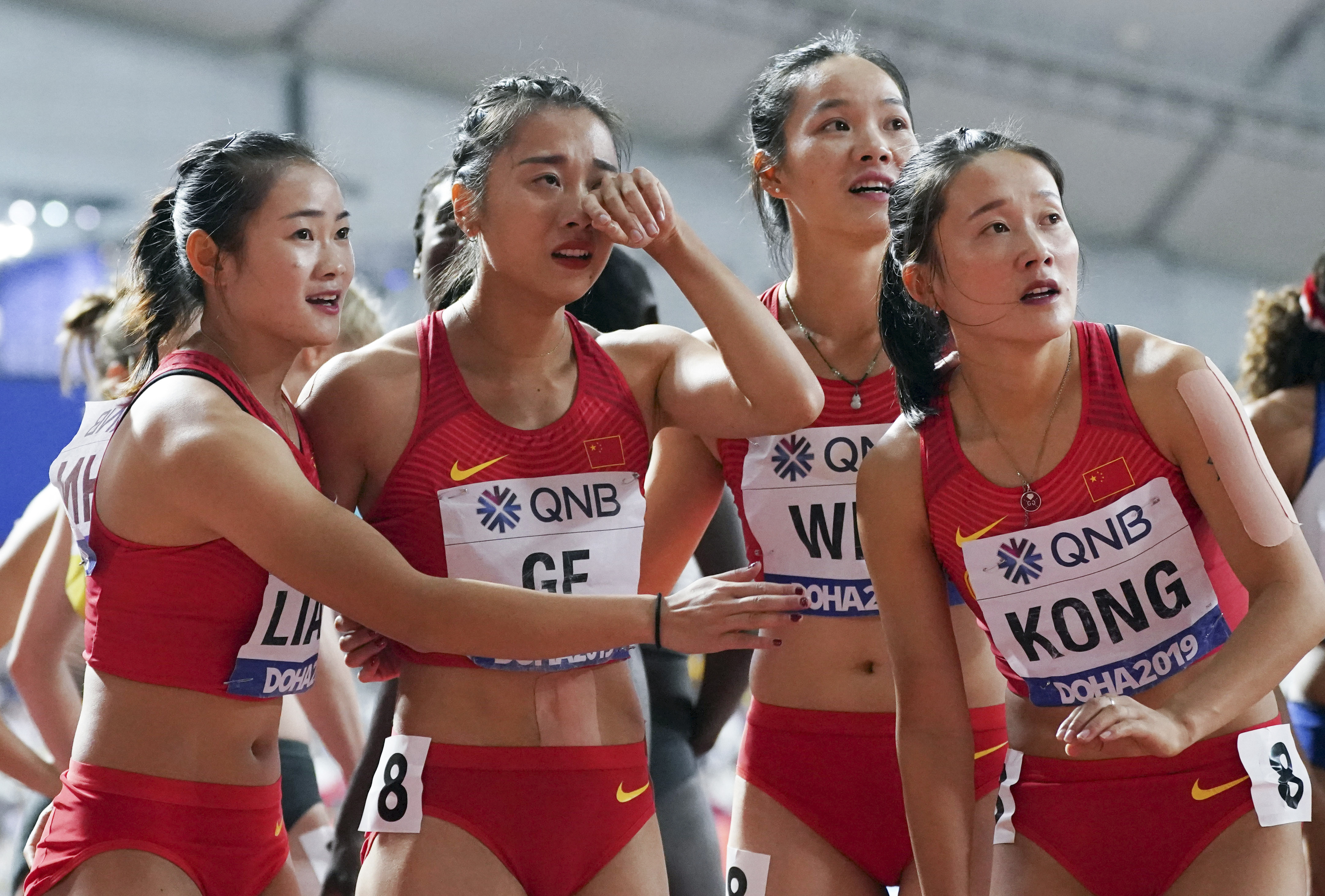
Ge Manqi (2nd from L) cried after the women's 4X100m relay final at the 2019 IAAF World Athletics Championships in Doha, Qatar, on Oct. 5, 2019. (Photo: Xinhua)
One thing remains certain in the shadow of uncertainty cast by the COVID-19 pandemic: the determination of Chinese athletes to compete at their best in the Tokyo Olympic Games.
As China's national two sessions are held in Beijing, Olympic shooting champion Du Li, a member of the Chinese People's Political Consultative Conference, asked for leave because she is leading the training of the national shooting team in Putian in southeast China's Fujian Province.
"Due to the outbreak of COVID-19, many international competitions were canceled. And we have been training behind closed doors since last year," Du said.
When the outbreak started last year, Chinese athletes were still active in the Olympic qualifiers and related tournaments. As Chinese athletes' bid for the coming summer Olympics might be influenced by possible entry restrictions of relevant countries and regions, some Chinese athletes chose to go abroad before the related competitions and to train outside China.
The Tokyo 2020 Olympics, postponed to July, will award medals across 339 events in 33 different sports. According to China's State General Administration of Sport, by the end of last year, Chinese athletes have qualified in 155 events across 20 sports such as archery, equestrian, diving, women's basketball, women's volleyball, and table tennis.
4-month countdown
Impacted by the pandemic, Olympic qualifying events in 25 sports, including fencing, judo, track and field, swimming, and gymnastics, have not concluded yet. This means that athletes involved in these events have to prepare for the scoring and qualifying competitions first to gain the Olympic qualifications instead of having themselves fully trained for the Games.
With only four months to go before the opening of the Tokyo Olympics, athletes can only face these challenges by training behind closed doors. "The main problem is that we don't have formal events. It is quite troublesome. Without competitions, athletes find it hard to adjust their form in training," Du said.
"For more than one year, some young shooters only participated in several national trials, which cannot be put on a par with international competitions such as the World Cup and the Olympic Games. Despite the athletes' results in training, there is still much uncertainty going into events."
Not only shooters but other athletes were also plagued by the lack of formal events.
Chinese taekwondo athletes experienced a painful 10 months without competition last year.
"These 10 months were not only disastrous for athletes but also very tough for the national team's preparation for Olympics," said Guan Jianmin, Chinese Taekwondo and Karate Association president and a CPPCC member.


